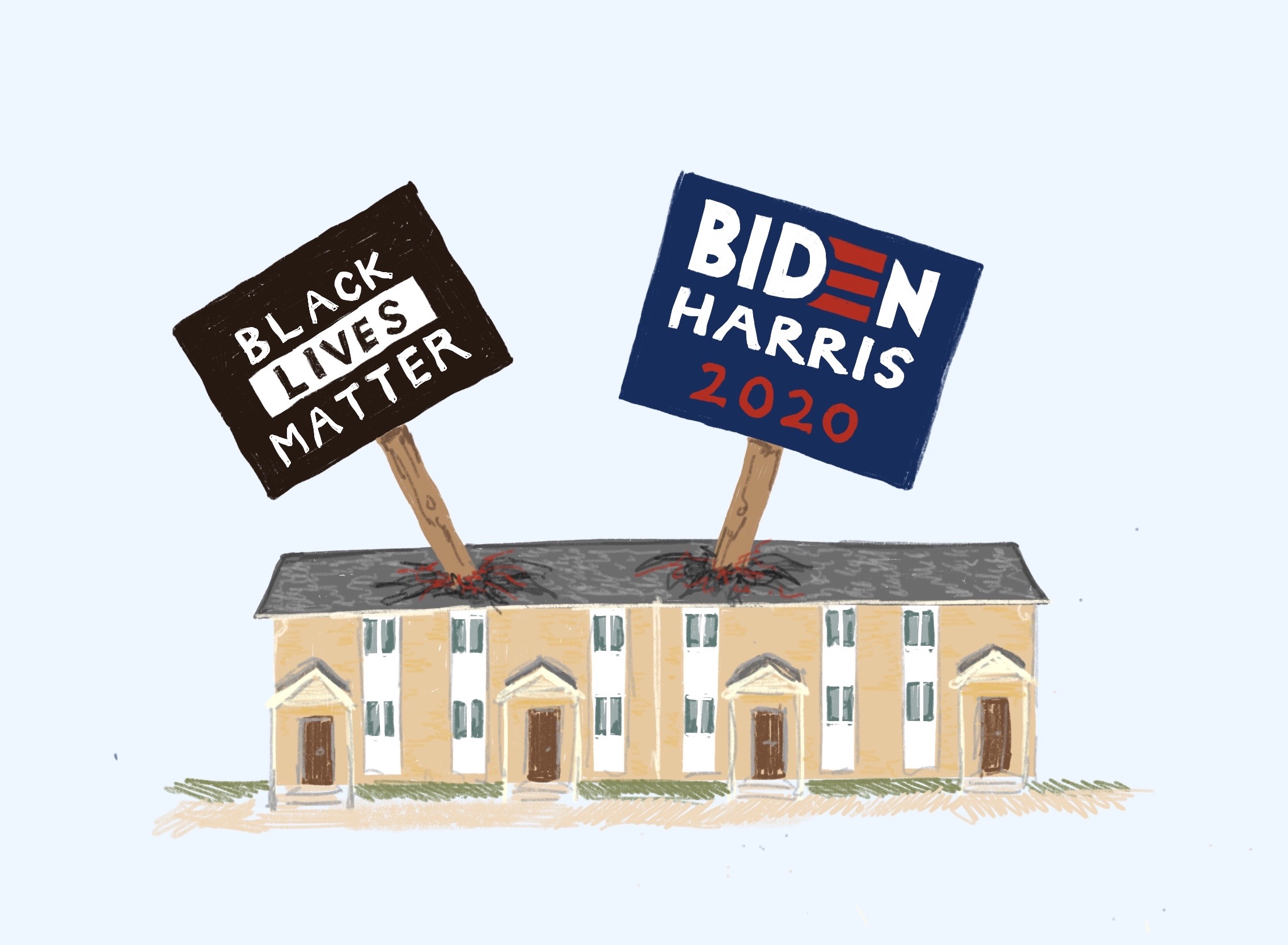OPINION: Suburban New England needs to walk the walk
October 16, 2020
 This
piece represents the opinion of the author
.
This
piece represents the opinion of the author
.
 Kayla Snyder
Kayla Snyder
These systems have created obvious class segregation in southern Maine, and this is a problem throughout much of New England. Many of the “Just Outside of Boston” folks at Bowdoin come from towns much like Falmouth—affluent and structurally classist. High-income children in these towns often enjoy the privileges of wealthy parents, highly funded schools, well-maintained town resources and much more. They go off to schools like Bowdoin, enjoy high-paying careers, eventually settle into suburbs like those in which they were raised and perpetuate systemic class inequality, which is inextricably linked to racial inequality and xenophobia, as many of those excluded from these towns are BIPOC and/or immigrants and refugees.
The irony of the cycle is the illusion of New England liberalism associated with these suburbs. Massachusetts, Connecticut, Rhode Island, Vermont and southern Maine are consistent shoe-ins for Democratic electoral candidates. Everywhere I go in Falmouth, I see Black Lives Matter signs, rainbow flags on houses and “Coexist” stickers on cars. Affluent New England suburbs are perfectly comfortable with social liberalism that doesn’t directly affect their comfortable livelihoods, but when left-leaning policies begin to threaten property values and school funding, it becomes a much different story.
For example, my Falmouth, the same Falmouth that voted 61-31 in favor of Hillary Clinton in 2016, blocked a proposed low-income housing project with a development moratorium in 2017. The prospect of 32 affordable units in a small development lot was a great enough threat to the property values of the wealthy residents that they overwhelmingly voted against it. These folks would rather keep the minute fraction of their property values that may have been lost due to the development than greatly improve the lives of 32 low-income, BIPOC and/or immigrant families. And this isn’t just a Falmouth problem—this perpetuation of class segregation occurs throughout New England. Just the other day, a friend of mine shared a photo of a poster campaigning against an affordable housing project in a wealthy Massachusetts suburb much like Falmouth—one that claims to support Black Lives Matter but refuses to directly help Black lives when given the opportunity.
Wealthy New England suburbs need to put their money where their mouths are. These towns love to claim moral superiority over vehement Trump voters by embracing Democratic pandering and touting social liberalism when it doesn’t affect their own wealth. If towns like Falmouth want to occupy the moral high ground so badly, they need to do so through action rather than words. It’s time they open up their gated neighborhoods and share the abundance of resources with those who have been denied equity in education and town services for years and years. So, to the town of Falmouth and others of the like: if you really do support the causes you claim to embrace, then it’s time to show it through action and policy. Quit talking the talk to make yourselves feel better, and start walking the walk to actually help the folks around you in need—even if that means your house ends up being worth a little less.
Comments
Before submitting a comment, please review our comment policy. Some key points from the policy:
- No hate speech, profanity, disrespectful or threatening comments.
- No personal attacks on reporters.
- Comments must be under 200 words.
- You are strongly encouraged to use a real name or identifier ("Class of '92").
- Any comments made with an email address that does not belong to you will get removed.

Kudos, sir! This country would be better served if “low income” children could have better schools;education is the tide that rises ALL boats. NIMBY is the wrong club to support!
Surely you mean “shoo-in”? C’mon, editors.